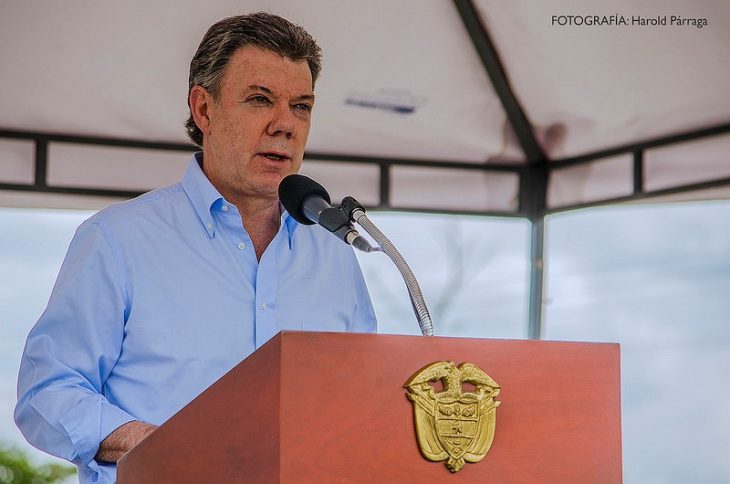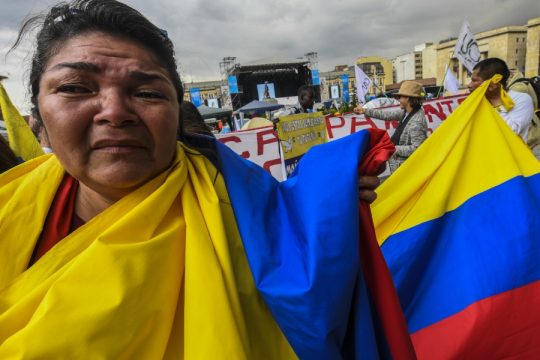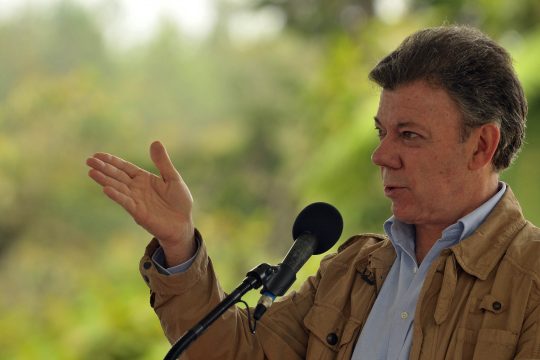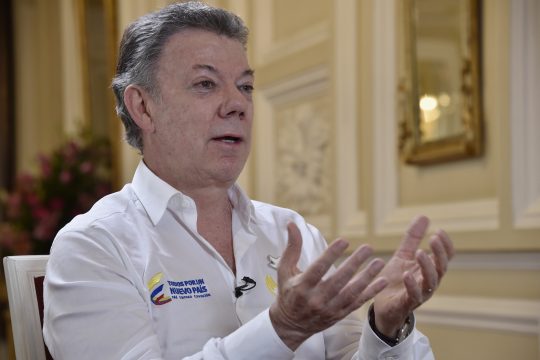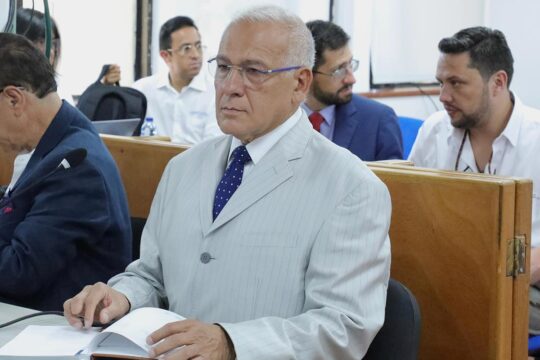Colombia's Congress on Wednesday passed a law granting amnesty to Marxist FARC rebels as part of the country's peace deal, a development the government hailed as "historic."
"Thanks to the Congress which in a historic vote approved the amnesty law, first step toward consolidating peace," President Juan Manuel Santos said on Twitter.
The measure grants special legal treatment, amnesty and pardons to members of the Revolutionary Armed Forces of Colombia (FARC) accused of political and related crimes.
The Senate passed the bill 69-0, after the House of Representatives approved it 121-0.
"We welcome the approval of the Amnesty Law, this is another step in the long road to bringing peace to Colombians," FARC chief Rodrigo "Timochenko" Londono said in a tweet.
Launched in 1964, FARC is about to begin handing over its weapons under a UN-monitored demobilization process.
Now "5,700 guerrillas will begin to descend from the mountain and surrender their weapons," Senate President Mauricio Lizcano said in a statement.
The five-decade conflict has killed more than 260,000 people, left 45,000 missing and forced nearly seven million to flee their homes.
The amnesty bill is part of a November 24 pact aimed at ending the conflict.
Former president Alvaro Uribe spearheaded opposition to the peace deal after nearly four years of negotiations.
The former president and his allies argue the deal grants impunity to rebels guilty of war crimes, giving them seats in Congress rather than sending them to prison.
After voters rejected an earlier peace deal by a narrow margin, the government and the FARC renegotiated it, deciding to have it ratified in Congress rather than risk a second referendum.
Details of law
The new amnesty law does not apply to FARC rebels accused of offenses such as war crimes, rape, torture and extrajudicial killings.
Those who confess to their crimes before a special court may avoid prison and instead receive alternative sentences.
Others who do not confess and are convicted in court will receive sentences of eight to 20 years.
The law also provides a framework for punishing civilians and state agents who have been "convicted, tried or accused" of offenses related to the armed conflict.
Defense Minister Luis Carlos Villegas told the Senate that there will now be a legal process for dealing with some 5,000 state agents.
The amnesty law is set to be reviewed by Colombia's Constitutional Court, which had previously approved special fast-track procedures in Congress to implement the peace deal.
Under the deal, the FARC must demobilize and surrender their weapons within six months.
The Colombian government is still seeking to salvage talks with the country's second-largest rebel group, the National Liberation Army (ELN). The process has stumbled over the issue of hostages and prisoners.



